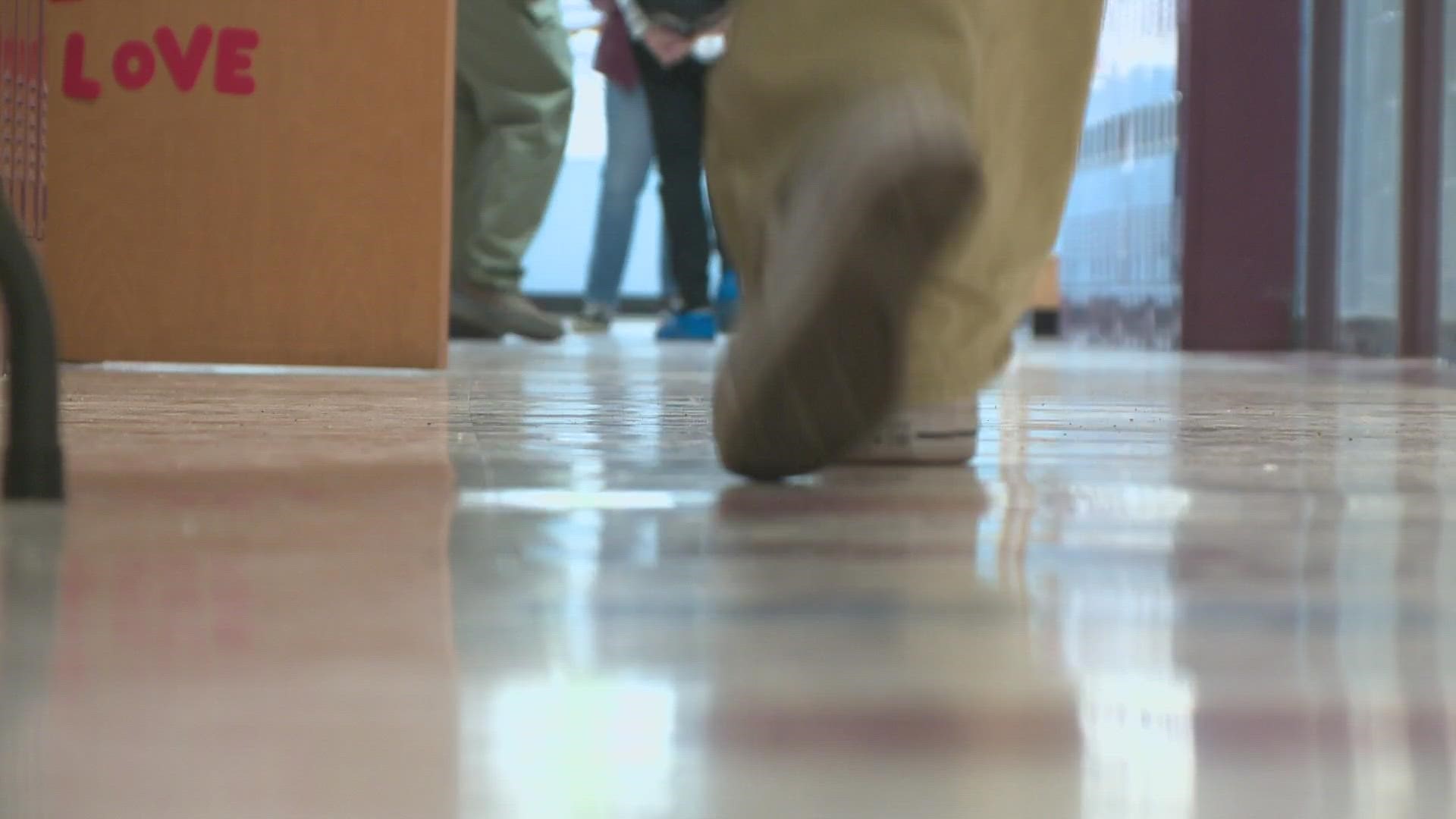ST GEORGE, Maine — The small school in St. George is facing a noticeable increase in students experiencing emotional and behavioral health issues. The school has slightly more than 200 students, K-8, and a steadily increasing number who need help through special education.
"When I started this job in 2015, 12 percent of our budget went to special ed. Now it's 21 percent of our budget to special ed," Superintendent Mike Felton said. "When I started, we had one special ed teacher and two ed techs. Now we have a special ed director, five special ed teachers, and 10 special ed techs."
Dr. Jessica Berry, the school's special ed director, said St. George is experiencing the same kinds of challenges faced by other schools in Knox County—families with a range of problems that are manifested by their kids at school.
"They’re coming in with these really sad, intense stories of neglect and abuse, then they are reliving that trauma at school through aggressive means. That breaks down educators because they are becoming the mental health providers and crisis workers."
Berry said those needs have become so significant that she and other special ed directors were talking about what could be done, and decided to hold a public meeting to raise the red flag for administrators, town and city leaders, and the public. That meeting drew a crowd of some 200 people, far more than expected, and was a sign that the call for help had struck a nerve.
"I think the core of the problem is our families are under tremendous stress," Felton explained.
"Getting mental health needs met, putting food on the table, housing, a variety of services, opioid epidemic. Tremendous stress on families… What we see is more extreme behaviors from younger and younger students. The reality is we see teachers go home with bruises on a more regular basis, and these are teachers working with K-5 students."
The concerns also hit home with local health care providers, including Rachel Wilcox, NP, a pediatric nurse practitioner at Pen Bay Hospital in Rockport.
"It's heartbreaking to watch these kids go from infants to toddlers, to see it coming and not be able to intervene at the level we need to."
Wilcox and others said they see generational family dysfunction playing out in today’s students, as young parents who suffered from high-stress households as children themselves now are creating similar problems for their own children.
"I think our whole community is in crisis," Joseph Huifnagel said, who directs The Landing Place, a teen center in Rockland that tries to provide support for many of the children.
"What I’ve seen in recent years is a greater willingness by youth to be asking for help and us not able to provide it. That level of support, whether therapy, counseling, the basic needs can get provided but then the youth are sent home to families that aren’t stable."
The educators and others said they have to find better ways to intervene and help the students and families so that schools aren’t overwhelmed by students with behavioral or emotional issues.
Wilcox said there simply aren’t enough services for area families, even if they do seek help for their children.
"There is an assumption these services are readily accessible and readily provided but they aren’t," the nurse practitioner said. "There are very limited resources for therapy and counseling to even be able to help the family of a three-year-old asking where can I get services for the child, and there’s nowhere to send them."
Berry said a core group of those from the meeting is working on the first steps—acquiring detailed research and developing plans to create some sort of organization that can be a clearinghouse to connect parents and providers with the particular services a family needs.
She acknowledged that work may involve pushing to change some state policies and regulations, finding more funding to hire more trained therapists, counselors, and educators to help children, and a means to provide services to help stabilize families.
Berry said that work needs to be done by the end of the school year, and possibly sooner if financial or policy help is needed from the state.
The Maine Department of Education told NEWS CENTER Maine it had staff members at the large meeting, and that some staff continues to work with the Knox County leadership group.
Superintendent Felton said the schools are overburdened, but that he thinks, with the proper programs and people, they can find ways to help the students become stable.
"They can go from kicking and screaming and biting to reading and writing and caring for one another. That’s what keeps us going in this profession."

